How Hard Do Law Students Work Outside of Class?
The average law student spends a sizeable amount of time reading and otherwise preparing for class each week. But given the stresses and time pressures placed up students, how many of them occasionally skip the required readings? We examined LSSSE data from 2004 to present to look for trends.
LSSSE’s core survey asks about how often students come to class without completing required readings or assignments. In 2021, fully 38% of students said they never came to class unprepared. This is up significantly from the all-time low in 2005 of only 27% who said they always completed required readings and assignments. In fact, there has been a steady upward trend toward meticulous class preparation over the last decade and a half.
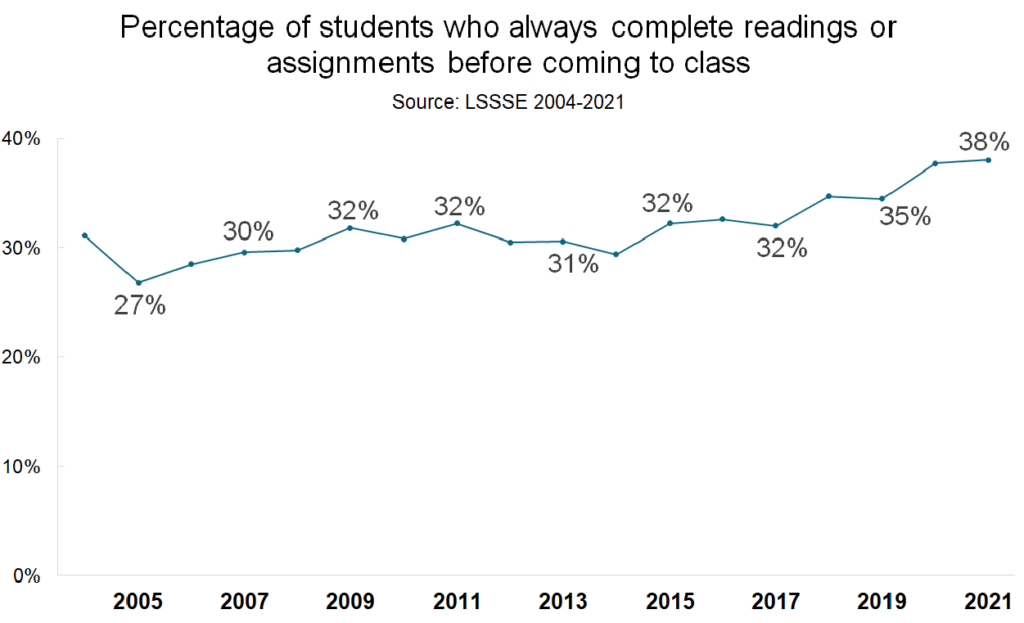
A similar attitude toward hard work outside of class time can be seen in the percentage of students who prepare multiple drafts of a paper or assignment before turning it in. In 2005, 14% of student never prepared additional drafts of their coursework. By 2019, that number had dropped to 7%. However, in 2020 and 2021, the number of students who never prepared multiple drafts increased slightly again. It will be interesting to see whether this is a pandemic-fatigue effect or whether students are gradually showing either less interest in re-writing or less available time in which to do so.
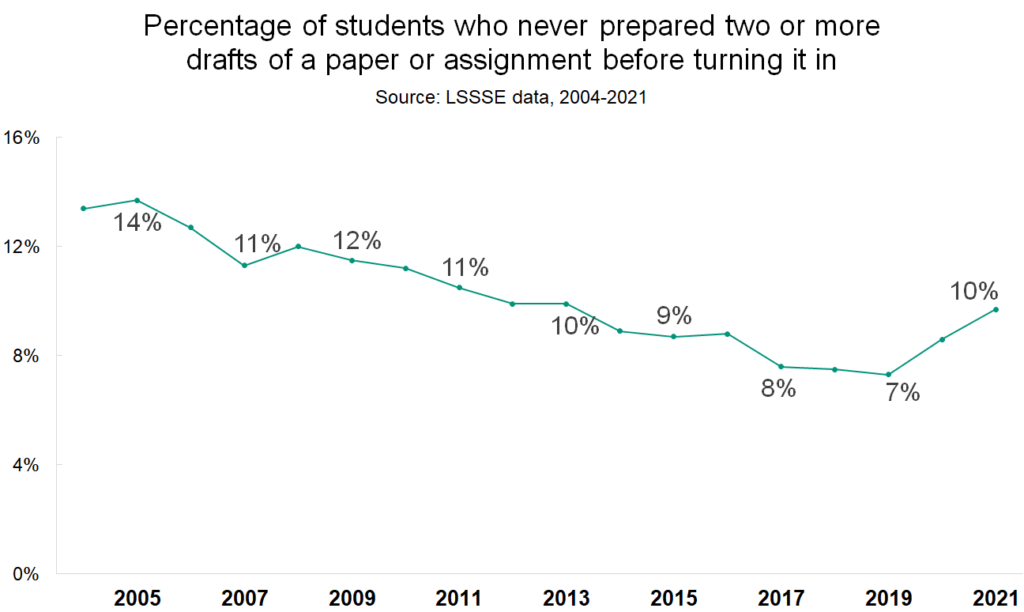
Writing can play an important role in developing critical thinking and reasoning skills, which is why it is a central component to a legal education. This is also true of doing assigned reading, which occupies about 18.5 hours of a law student’s week on average, and performing other types of course preparation, which takes another 11.2 hours of effort per week. Since LSSSE started collecting data in 2004, it appears that law students have generally become more engaged with putting in the effort necessary to reap the benefits of a legal education, even when that effort happens at home.
Writing Papers in Law School
Writing assignments are useful tools for challenging students to put complex thoughts into understandable language. The amount of writing required in law school can vary across courses, years, and schools. Students also sometimes have different reactions to their writing experiences. Here, we estimate how many pages students wrote during the 2019-2020 school year and show how the number of pages written is related to perceived gains in writing abilities.
Law students report on their writing assignments with three LSSSE questions:
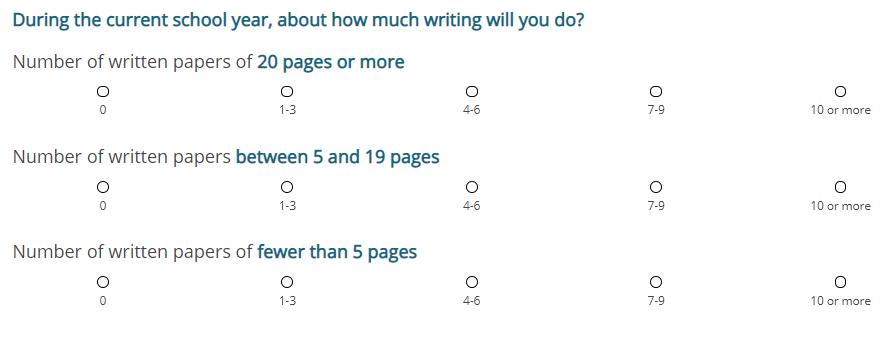
Universal Background Checks: This would require a background check for all individuals seeking to purchase firearms, regardless of the source of the firearm. This would help to keep guns out of the hands of individuals argumentative essay on gun control with a criminal history or history of mental illness.
Shorter papers (fewer than five pages in length) are quite common law school. Only 16% of respondents did not write any short papers. Most students (59%) wrote between one and six short papers, although 15% of students wrote ten or more.
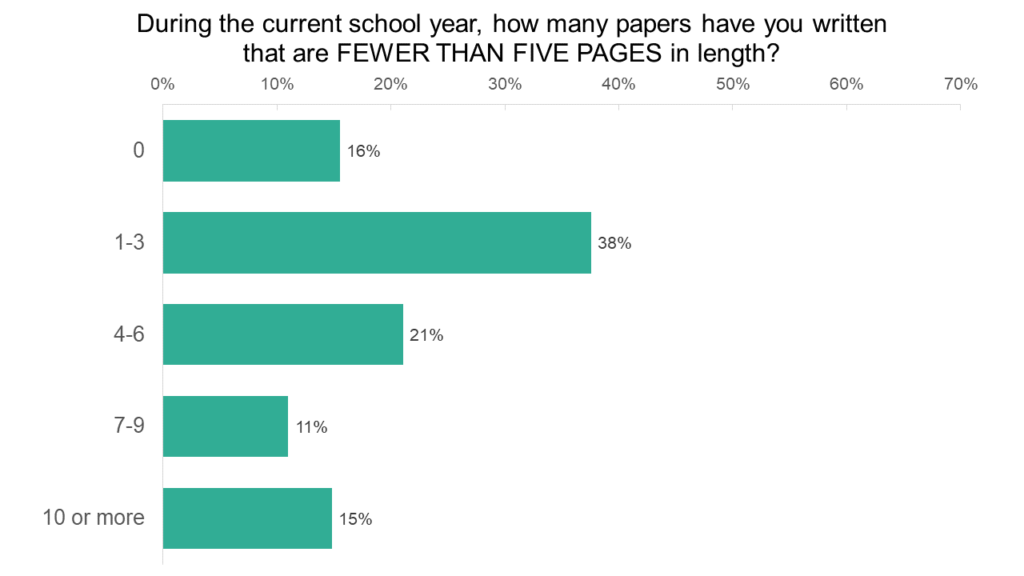
Medium-length papers (5-19 pages) are another staple of law school. Slightly more than half of law students (52%) wrote one to three papers of this length during the previous school year, and another quarter (27%) wrote four to six papers of this length. Only 10% of students did not write a medium-length paper in the previous year.
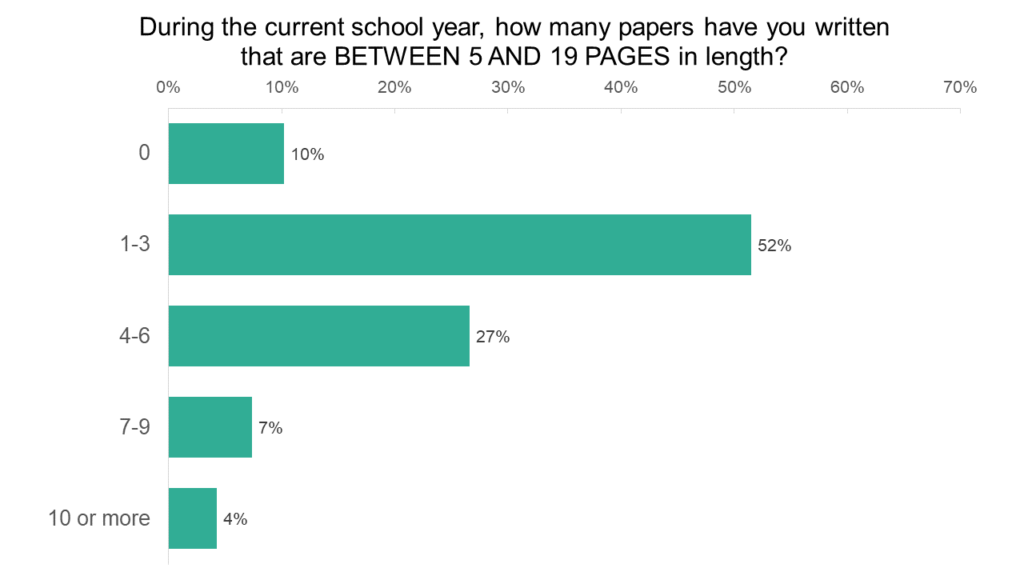
Long papers (20+ pages) are somewhat less common. About 31% of students did not write any long papers during the previous school year, although more than half of students (58%) wrote between one and three long papers.
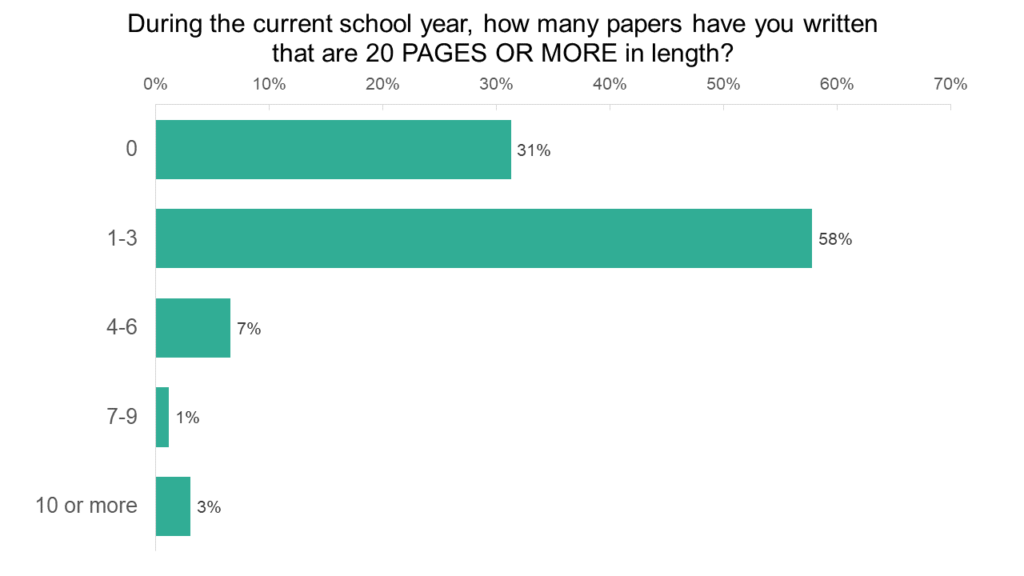
We can also use information from these three writing questions to create a very rough estimate of the total number of pages each student wrote for class assignments over the past year. Law students tended to write between 26 and 100 pages total. This range accounts for about 60% of law students. Over a quarter (27%) of law students fell specifically into the 51-75 page range. But nearly one in five law students (19%) wrote over 125 pages in the previous school year.
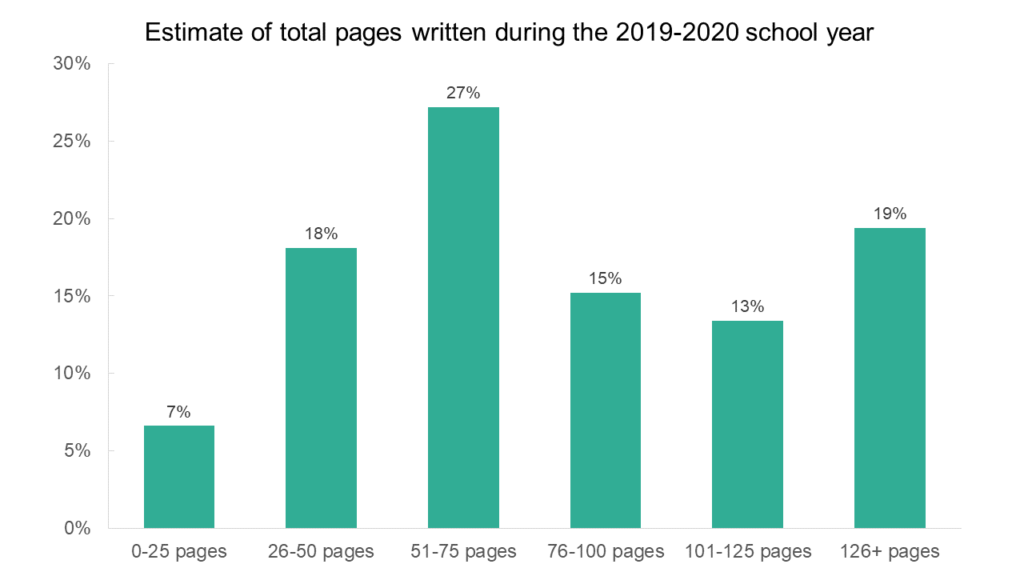
Part of the purpose of writing assignments is to assess how students are assimilating and analyzing information. Another purpose is to enhance students’ writing abilities. In a separate section of the survey, LSSSE asks about the degree to which law school has contributed to the development of the student’s writing ability. Interestingly, when we correlate students’ responses to this question with the number of pages of writing they did over the course of the year, we see a gradual increase that plateaus at around 76-100 pages. That is, in general, students who write more pages of text believe that law school has helped them become better writers but only to a certain point. Beyond about a hundred pages of writing (combined across all their classes), students are not more likely to say that their experience at law school has contributed to their ability to write clearly and effectively.
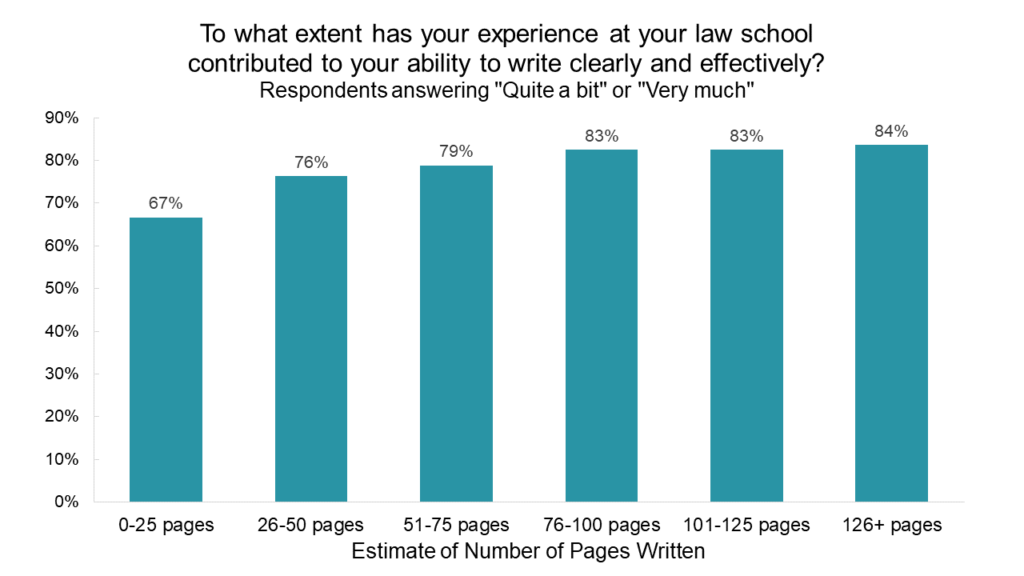
Law school provides consistent opportunities for students to hone their writing and reasoning skills. Most law students write a handful of short- and medium-length papers each year. Students generally feel that law school contributes to their ability to write clearly and effectively, including those students who only wrote 25 or fewer pages in the previous year. However, students who wrote more (up to around 100 pages) tend to respond more favorably to the writing skill development question than students who wrote less.


